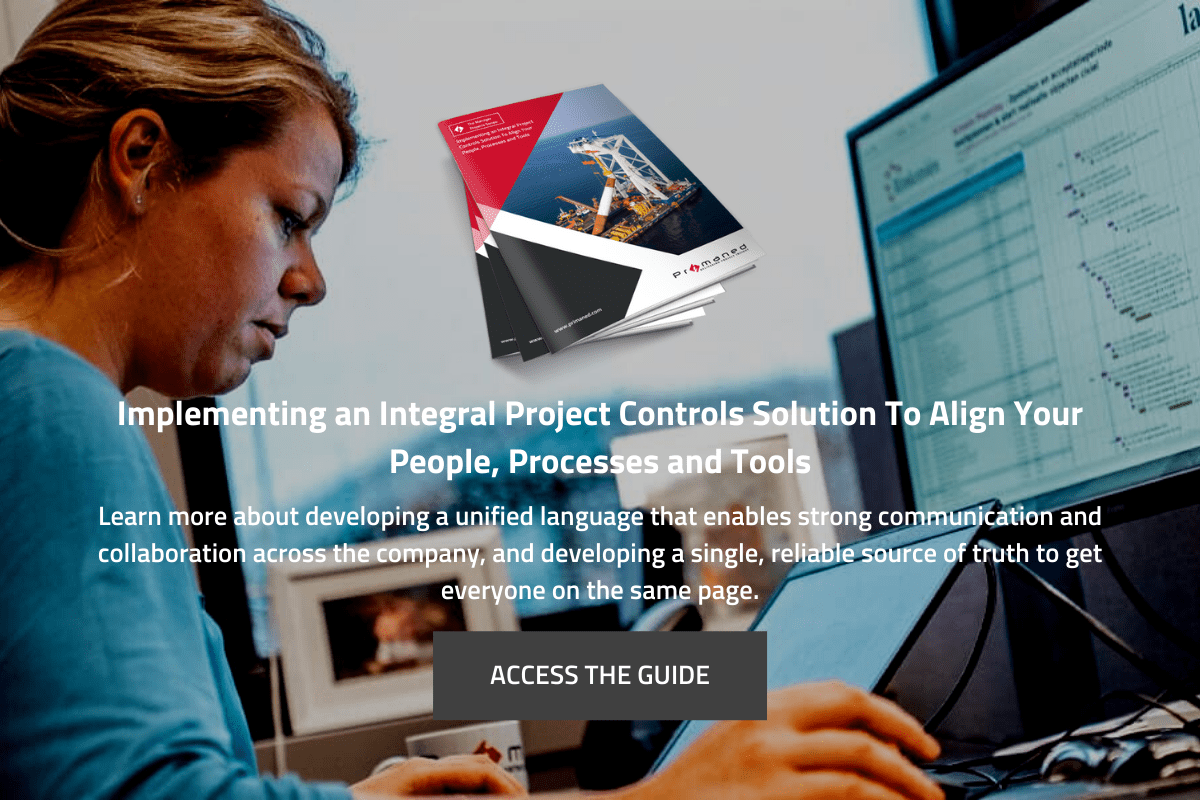Reducing Project Risk: How to Monitor, Intercept, and Proactively Solve Project Failures
By Paul Vogels on Nov 25, 2021 11:00:00 AM

Reducing Project Risk: How to Monitor, Intercept, and Proactively Solve Project Failures
Reducing project risk is high on everyone's agenda, however, risk exists in many different forms across every project, including scheduling risks, time risks, cost risks, scope risks, and resource risks. Risk is everywhere. And, as you’ll already know, when you’re working with manual systems such as Excel, it’s difficult - if not impossible - to gain the insight you need to properly predict the likelihood of things going wrong. For managers, this often results in high levels of stress as they attempt to fix problems and ensure that projects are delivered both on time, and within budget.
Of course, if the wrong decisions are made, the solutions aren’t implemented in time, or if a critical risk is overlooked, there can be major consequences for both the team and the organisation as a whole, especially if the client introduces penalties for overruns.
Reducing project risk and therefore project delay must be a priority. And that means adapting internal processes.
Changing Your Way of Working
Think about how your department operates today. Your team probably only gets involved in scheduling and risk analysis when something goes wrong, correct? It’s time to change that, and start working in the opposite way; making risk a major consideration from the very start of the planning process so that teams are prepared to handle any eventuality.
The Oracle Primavera Cloud system can fully support this change. And when you’re presenting your business case for OPC implementation to the board, it’s natural that reducing project risk will be one of the primary benefits that you’ll focus on. However, a question that you’ll likely be met with during your presentation is this: How can the software and implementation create less risk in our scheduling and planning?
There’s a strong three-part answer to this question that you can share with the c-suite: OPC helps teams to monitor, intercept, and proactively solve project failures before they impact overall outcomes, reducing project risk from the very beginning.
Monitoring Project Risk
OPC integration empowers you and your team to monitor project risk through the Oracle Primavera Cloud Risk Register; a centralised platform that enables potential risks to be identified, assessed, categorised, and most importantly monitored throughout the entire duration of the project life cycle. All possible risks can be logged in the Risk Register, with opportunities to add vital details such as a description of the risk, current status, the likelihood of the risk, and the impact it could have on the success of the project.
Using the risk features in OPC, teams can run Monte Carlo simulations to identify the most critical risks to monitor, and regularly produce probability curves that can show whether the project is remaining on track in terms of time and cost estimations. It’s also possible to create histogram curves to keep the client informed of changes to risk.
Intercepting Project Risk
When project risks are effectively identified and monitored, they can also be effectively intercepted to ensure they have little to no impact on overall outcomes. Oracle Primavera Cloud allows planners to create strategic response plans to risk and make calm, well-founded decisions that intercept the risk before it becomes a major issue.
This is achieved by building a pre-response risk context that enables you to generate plans of action that stop problems in their tracks. You can add risk response actions into your pre-response risk context that spark actions which can effectively and efficiently mitigate risks that, through monitoring, have been found to be rising in probability.
Once risk mitigation actions have been implemented, a risk analysis report can be generated to show if the interceptions were successful in reducing project risk. If not, a post-response risk context can be generated to proactively solve project failures.

Proactively Solving Project Failures
Should a risk analysis report determine that interceptions were unsuccessful in reducing project risk, it’s still possible to minimise the impact that risk can have on delivery by proactively solving project failures early on so that small issues don’t become bigger, more costly problems. OPC allows you to take action to prevent now, not fix later.
As you’ll already know, there are always some risks that will never be able to be fully eradicated at the interception stage, but their impact can be significantly reduced through a post-response risk context that enables you and your team to document the actions that should be taken to alleviate negative effects should the worst happen.

The Importance of Reducing Project Risk
Reducing project risk is important for your clients, your reputation, and your business. But it’s also important for you and your team, too. Successfully reducing project risk by monitoring, intercepting, and proactively solving project failures transforms your team from firefighters into fire preventers. And this is key to elevating your team to success.
When your team isn’t constantly trying to put out fires, and when you’re not getting pulled in to help your team fix problems, you’re freeing everyone up to focus on building a stronger, more robust, more resilient planning department. You’ll have more time to catch up, coach people, talk things through, and develop strategies, helping to ensure both your team and your managerial skills get the recognition they deserve.
- OPC (15)
- Software (13)
- PC Boardroom (11)
- Academy (9)
- Consultancy (7)
- Manager Project Controls (7)
- IT / Procurement (5)
- Planning Engineer / Scheduler (5)
- Information Manager (4)
- Project/Assets Manager (4)
- Document Controller (3)
- Document Management (3)
- Oracle Aconex (3)
- Project Controls (3)
- BI & Data Analytics (2)
- C-level (2)
- Risk Manager (2)
- Scheduling Lead (2)
- Operational project staff (1)
- PMWeb (1)
- Resource Manager (1)
- Safran Risk (1)
Subscribe by email
You May Also Like
These Related Stories

How Project Controls Reduce Project Risk & Costs, and Improve Your Project Planning to Help You Win More Tenders
How Project Controls Reduce Project Risk & Costs, and Improve Your Project Planning to Help You Win More Tenders According to a recent survey, 93% of projec …
-1.png)
Improving Collaboration and Information Management in Multi-Organisation Projects
In large construction projects involving multiple organisations, managing accurate and up-to-date information can be challenging. With thousands of people tryin …

How OPC Software Can Reduce Manual Project Involvement, Save Time, and Increase Project Success Delivery
How OPC Software Can Reduce Manual Project Involvement, Save Time, and Increase Project Success Delivery While 38% of businesses are using legacy software for p …



